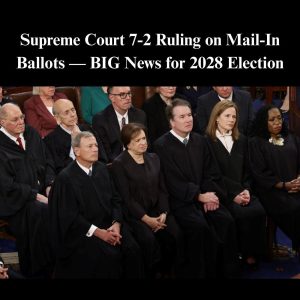In the high-stakes world of American politics, where every word is scrutinized and every statement can become viral
content within minutes, even the most experienced legislators occasionally stumble in ways that undermine their intended message. Such moments serve as stark reminders that political passion, while necessary for effective advocacy, must be tempered with precision and constitutional literacy to maintain credibility and effectiveness.
The latest example of this delicate balance between fervor and accuracy emerged from a television appearance that was intended to deliver a serious constitutional argument about presidential fitness for office. Instead, the segment became a case study in how a fundamental error can overshadow substantive policy concerns and provide ammunition to political opponents eager to question a critic’s competence.
What unfolded reveals not only the challenges facing lawmakers who must navigate complex constitutional processes while under intense media pressure, but also the broader implications of how constitutional illiteracy can undermine legitimate political discourse in an era when every mistake is amplified and weaponized by opposing political forces.
Representative Maxine Waters of California stepped before MSNBC cameras on Friday with a clear mission: to articulate her concerns about President Donald Trump’s fitness for office and call for constitutional action to address what she perceives as dangerous presidential behavior. The veteran congresswoman, known for her passionate advocacy and willingness to take strong stands against policies she opposes, intended to make a serious constitutional argument about the limits of presidential power.






